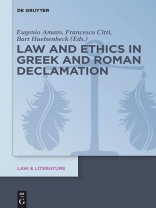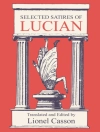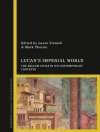Ancient declamation—the practice of delivering speeches on the basis of fictitious scenarios—defies easy categorization. It stands at the crossroads of several modern disciplines. It is only within the past few decades that the full complexity of declamation, and the promise inherent in its study, have come to be recognized. This volume, which contains thirteen essays from an international team of scholars, engages with the multidisciplinary nature of declamation, focusing in particular on the various interactions in declamation between rhetoric, literature, law, and ethics.
Contributions pursue a range of topics, but also complement each other. Separate essays by Brescia, Lentano, and Lupi explore social roles—their tensions and expectations—as defined through declamation. With similar emphasis on historical circumstances, Quiroga Puertas and Tomassi consider the adaptation of rhetorical material to frame contemporary realities. Schwartz draws attention to the sometimes hazy borderline between declamation and the courtroom. The relationship between laws and declamation, a topic of abiding importance, is examined in studies by Berti, Breij, and Johansson. Also with an eye to the complex interaction between laws and declamation, Pasetti offers a narratological analysis of cases of poisoning. Citti discovers the concept of natural law represented in declamatory material. While looking at a case of extreme cruelty, Huelsenbeck evaluates the nature of declamatory language, emphasizing its use as an integral instrument of performance events. Zinsmaier looks at discourse on the topic of torture in rhetorical and legal contexts.
Om författaren
E. Amato, Univ. Nantes/Institut Universitaire de France; F. Citti, Univ. Bologna, Italy; B. Huelsenbeck, Ball State Univ., Muncie, USA.












